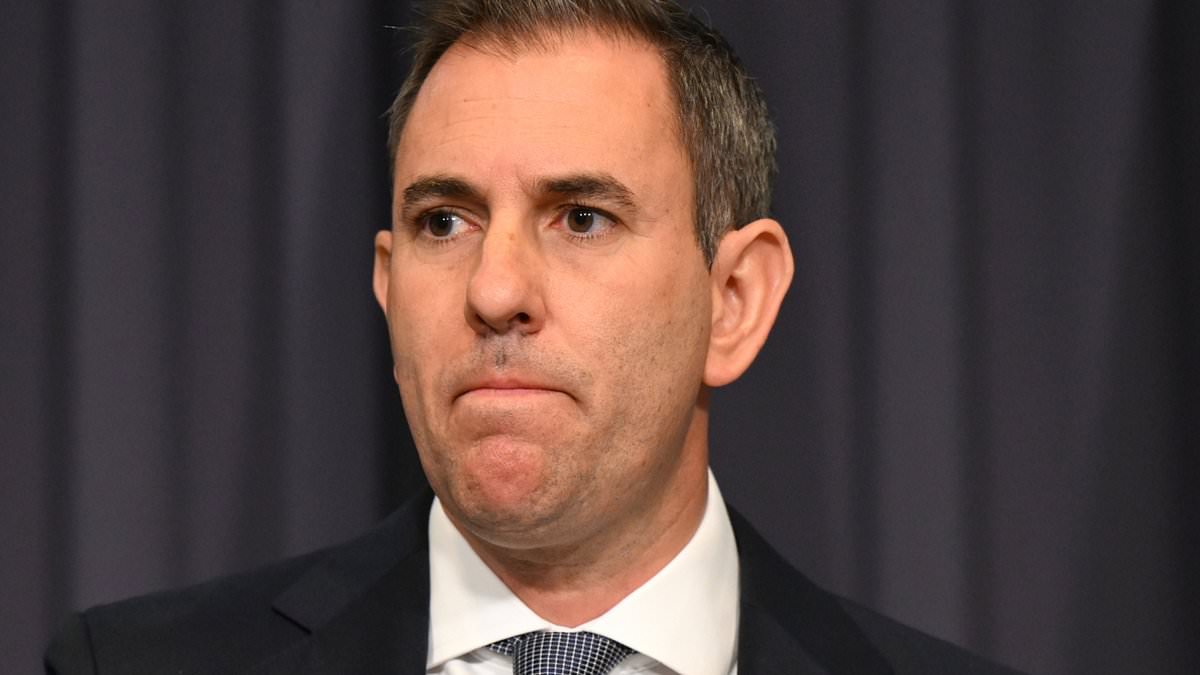On the eve of Treasurer Jim Chalmers handing down what is expected to be a horror mid-financial year economic update, The Economist journal has delivered a scathing assessment of the government’s management of the n economy.
isn’t ranked in the top 20 performing economies in the world in 2024, placing 21st out of 37 over the past two years after having previously been in the teens.
sits well behind other OECD nations such as Spain, Italy, Greece and even Mexico.
‘s economic performance is ranked similarly to that of the United States (ranked 20th), where the recent Presidential election saw the Democrats lose the White House off the back of a Trump campaign that condemned their management of the economy, tapping into mainstream voters’ frustrations.
The respected journal blames ‘s housing crisis for our poor performance this year, citing ‘rising housing costs’ as a key factor behind the nation’s economic woes. Other factors weighing down performance include stubbornly high underlaying inflation and anaemic economic growth numbers.
Tomorrow, Chalmers will deliver his final economic update for the year, expected to reveal slow growth, rising deficits and out-of-control government spending in areas of recurrent expenditure such as the NDIS.
Today he flagged some of the challenges, but tried to use the bad economic news to frighten voters that a Coalition government would be ‘coming for Medicare, medicines, pensions’. He also sought to bolster his own economic management credentials by citing the surpluses previously delivered.
A collapse in commodity prices has switched past surpluses into future deficits, according to the updated economic forecasts, as Labor continues to make new spending commitments (such as forgiving HECS debts and investments in childcare) despite the accumulation of debt on its watch.
The national debt is now over one trillion dollars and rising, with neither major party yet to unveil a strategy for paying it back.
The annual interest bill on the accumulated debt – without even paying it down – is now one of the largest line items in the budget, dwarfed only by welfare, health and defence spending, consigning future generations to the unenviable task of having to one day pay it back.
The Economist’s assessment flies in the face of efforts by senior government ministers, including the PM and the Treasurer, to argue that the n economy continues to ‘punch above its weight’. Instead, our standing compared to like-for-like OECD nations has been downgraded.
It’s not the sort of news Labor needs headlining next year’s election, due in the first half of the year. The worsening state of the n economy makes it more likely Labor will rush to the polls ahead of next year’s budget, set down for April. Perhaps as early as February.
Delivering a full budget showcasing bad economic news just before an election would undermine Labor’s efforts to cast itself as the better economic managers during a campaign.
But with the cost-of-living crisis still lingering, and locked into a perpetual cycle of quarterly per capita recessions, there is no hiding from the poor state of the national economy. Irrespective of when the next election is called.
Ahead of the 1996 election then opposition leader John Howard mocked prime minister Paul Keating for delivering ‘five minutes of economic sunshine’ before the economy again fell away.
Fast forward to today and the Peter Dutton led opposition may well look to do the same in the lead up to the election if Labor seeks to spruik the twin surpluses it handed down ahead of all the budget numbers across the next four years turning red.
The scathing assessment by The Economist coupled with the release of the fiscal update comes at the same time as a new poll finds that a majority of ns are dissatisfied with Anthony Albanese’s performance and believe the country is ‘on the wrong track’.
The Essential poll also revealed that 47 percent of ns believed that 2024 has been a worse year than they anticipated it would be.
It also found that 68 percent of voters are focused on which party is more likely to make them better off over the coming three years when they cast their votes. This sets up a showdown between Albo and Dutton over which party leader is better placed to manage the economic challenges ahead.
The Economist ranks OECD economies country by country according to the performance of their GDP (economic growth figures), sharemarkets, consumer prices, unemployment rates and debt levels.
The top 21 countries are Spain, Ireland, Denmark, Greece, Italy, Columbia, Israel, Lithuania, Switzerland, South Korea, Chile, Canada, Sweden, Iceland, Luxembourg, Mexico, Portugal, Czech Republic, Netherlands, US, .
